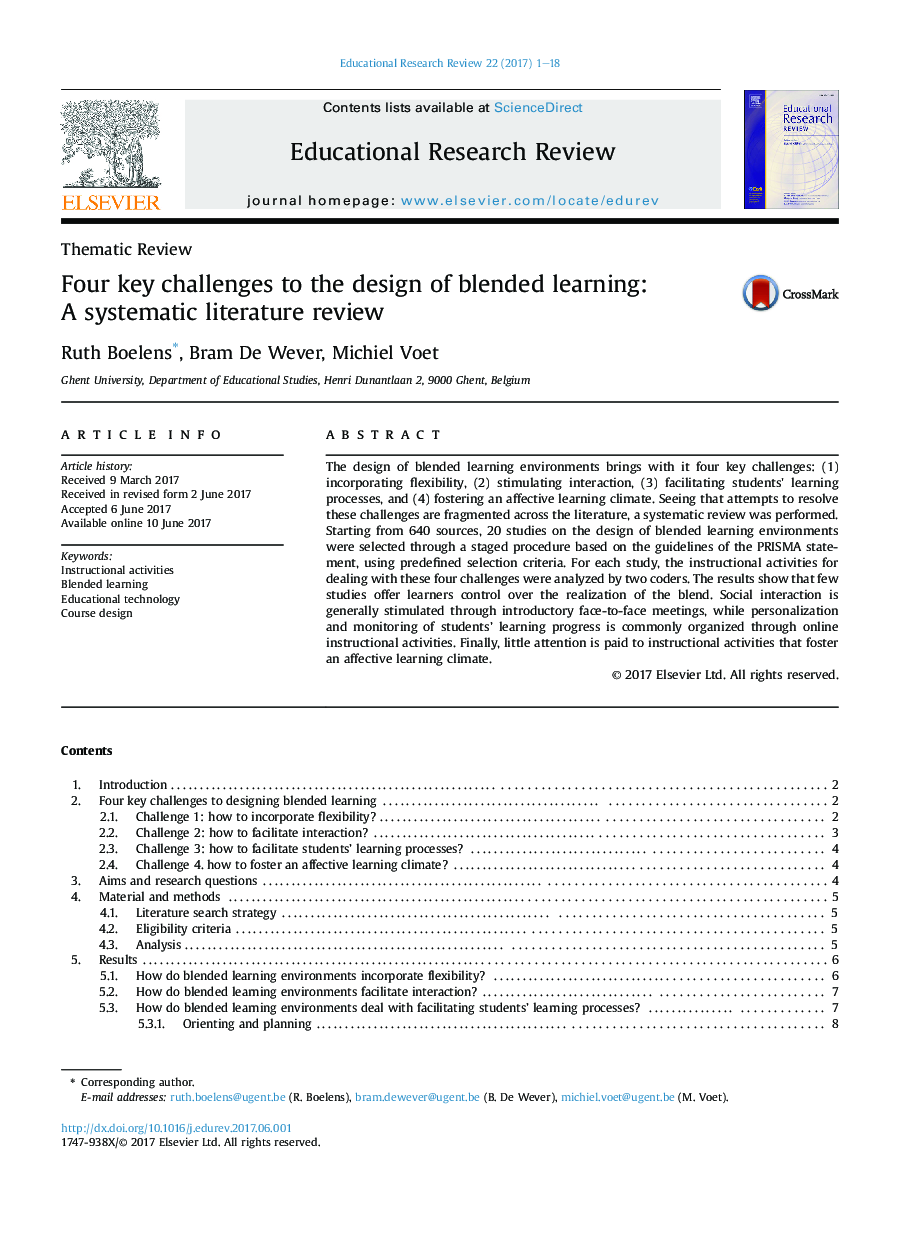| Article ID | Journal | Published Year | Pages | File Type |
|---|---|---|---|---|
| 4938350 | Educational Research Review | 2017 | 18 Pages |
Abstract
The design of blended learning environments brings with it four key challenges: (1) incorporating flexibility, (2) stimulating interaction, (3) facilitating students' learning processes, and (4) fostering an affective learning climate. Seeing that attempts to resolve these challenges are fragmented across the literature, a systematic review was performed. Starting from 640 sources, 20 studies on the design of blended learning environments were selected through a staged procedure based on the guidelines of the PRISMA statement, using predefined selection criteria. For each study, the instructional activities for dealing with these four challenges were analyzed by two coders. The results show that few studies offer learners control over the realization of the blend. Social interaction is generally stimulated through introductory face-to-face meetings, while personalization and monitoring of students' learning progress is commonly organized through online instructional activities. Finally, little attention is paid to instructional activities that foster an affective learning climate.
Related Topics
Social Sciences and Humanities
Psychology
Developmental and Educational Psychology
Authors
Ruth Boelens, Bram De Wever, Michiel Voet,
